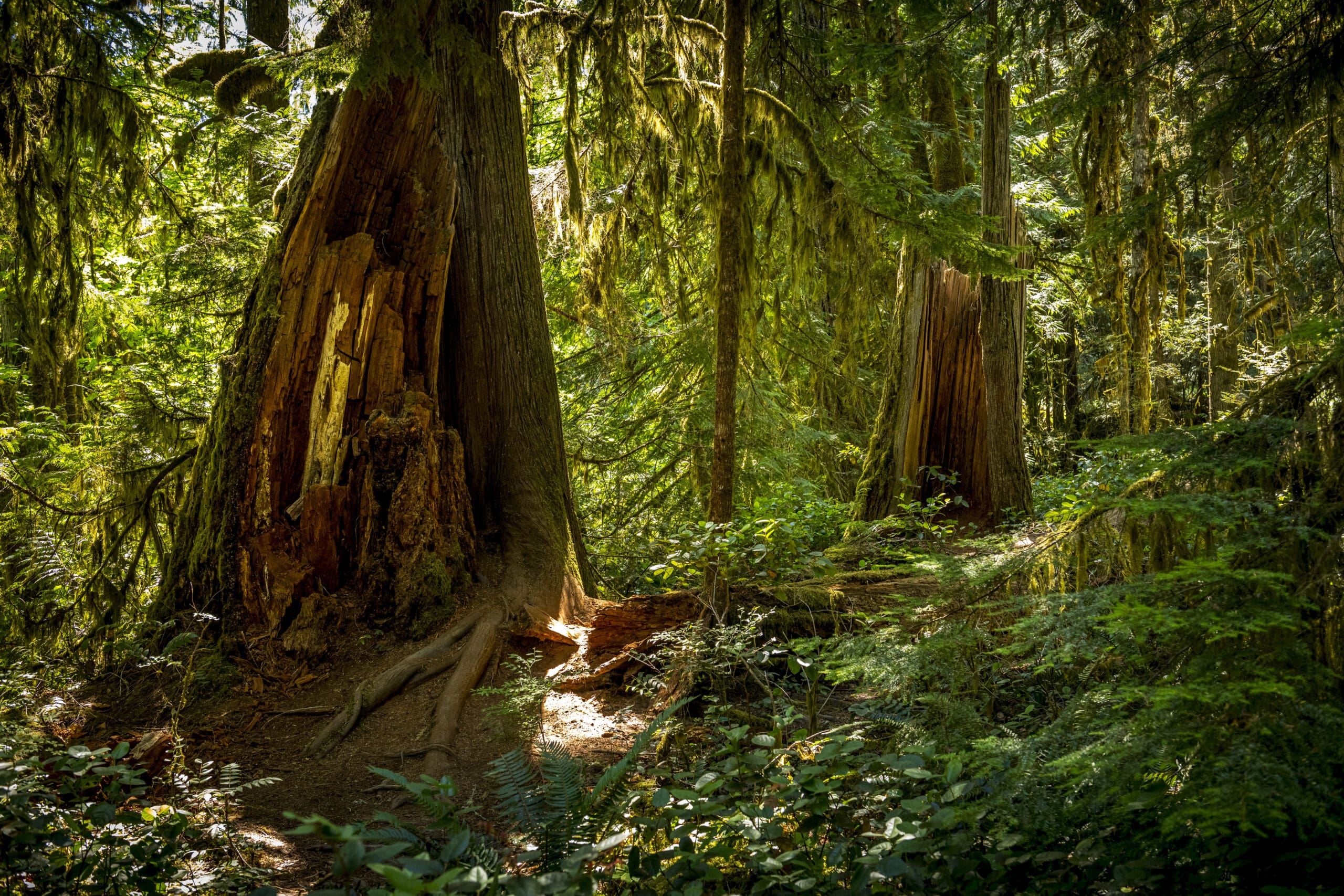Data sent anonymously to the Canadian Centre for Policy Alternatives shows that Ministry of Forests officials have rejected numerous recommendations made by an expert panel appointed by the provincial government to guide it in protecting more old growth forests in the province.
The leaked data, which originated in a password-protected file on a ministry file sharing website, was independently analyzed for the CCPA and shows that the ministry has rejected more than half of the proposed logging deferrals that the five-member Technical Advisory Panel recommended to the provincial government in October 2021.
“If this plan by ministry bureaucrats stands, the door could be wide open to logging the last remnant old growth forests, with a heavy bias to logging those forests with the best remaining trees,” says CCPA resource policy analyst, Ben Parfitt.
Analysis of the leaked ministry data shows that ministry personnel have removed 55% of the panel’s recommended deferrals and that a very large number of the removed deferrals are in old growth forests with the biggest and most valuable trees, forests that the panel’s foresters and biologists explicitly warned the government were at the gravest risk of being logged.
“This government logs first and talks second. And we’ve been pushing them to not keep logging and stop to take a look at what’s left,” says James Hobart, Chief of the Spuzzum First Nation.
Old growth forests in the Nation’s traditional lands in the Lower Fraser Canyon have been extensively logged and a subject of ongoing controversy due to ministry-approved logging of forests that are vital to the recovery of highly endangered northern spotted owls.
“It is vital that the government reject the ministry’s plans and immediately require full Indigenous consultation and oversight over what is and is not logged,” Chief Hobart said.
The analysis shows that the combined area of big-treed old growth deferrals recommended by the panel and rejected by the ministry is equivalent to 680,000 football fields in area, which sounds like a great deal of forest but at current rates of logging represents just a handful of years of supply for an industry that is rapidly running out of old growth trees to cut down.
“Ministry personnel seem intent on scuttling a science-based plan that very clearly flagged that big-treed old growth forests were rare, at increased risk of being logged and should be protected,” says Michelle Connolly, director of Conservation North, a volunteer organization dedicated to protecting the northern interior’s dwindling old growth and primary forests. “Forests Minister Bruce Ralston and Premier David Eby must not allow this to stand.”
The analysis shows that deferrals advocated by the panel and rejected by the ministry include:
- Old growth forests in the Goat River watershed in the heavily-logged and globally rare interior temperate rainforest.
- Numerous tracts of rare coastal old growth forest in Tree Farm Licence 6 on north Vancouver Island and Tree Farm Licence 44 on the island’s southwest coast.
- Old growth forests in north central BC’s Babine area where logging tracts of forests recommended for deferral by the panel has already taken place and more lies ahead.
- Old growth forests on the perimeter of Itcha Ilgachuz Park on the Chilcotin Plateau, home to the province’s largest remaining, rapidly dwindling woodland caribou herd.
The analysis also shows that ministry personnel appear to be trying to compensate for the numerous tracts of big-treed old growth forest that they have placed back into the logging column by increasing the number of logging deferrals in old growth forest with smaller, less commercially valuable trees.
The CCPA-BC analysis concludes by asking the question “whether the government will choose to be guided by what the scientists it appointed are saying or by Ministry of Forests bureaucrats who appear to have a very different agenda.”
To read the full report – policynote.ca/old-growth-leak
To arrange a media interview with CCPA-BC Resource Analyst Ben Parfitt contact:
Marianela Ramos Capelo
Email – marianela@policyalternatives.ca
Cell – 604-319-9855


